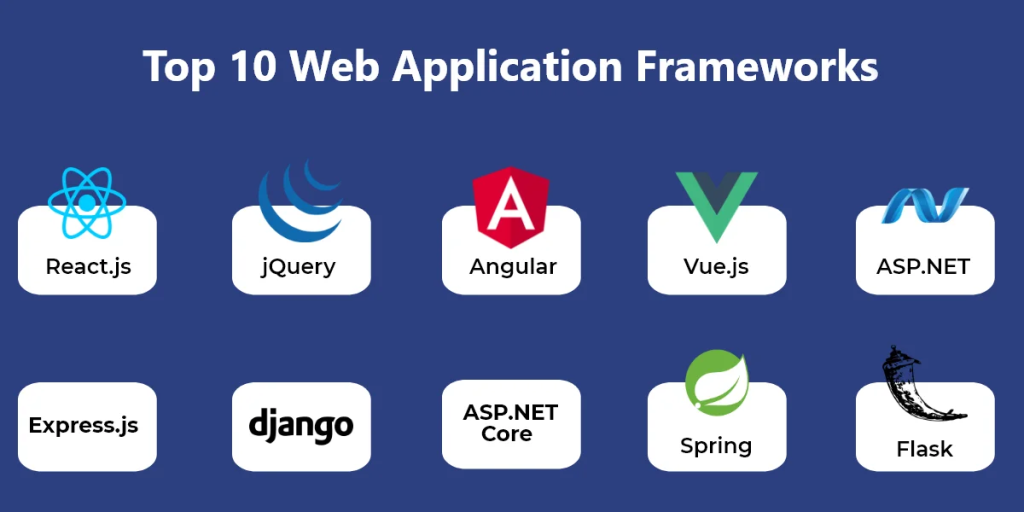
The web development landscape is constantly evolving, and web application frameworks are no exception. In 2024, we see continued dominance of established players alongside some emerging trends:
Established Players:
- Backend Frameworks:
- Django (Python): Popular for its rapid development, clean syntax, and extensive community support.
- Laravel (PHP): Offers a robust MVC architecture, great security features, and a focus on developer experience.
- Ruby on Rails (Ruby): Known for its convention-over-configuration approach, rapid development, and large community.
- ASP.NET Core (C#): Open-source and cross-platform, offering great performance and integration with Microsoft technologies.
- Express.js (JavaScript): Lightweight and flexible Node.js framework for building APIs and web applications.
- Frontend Frameworks:
- React.js: Widely used library for building user interfaces, known for its component-based architecture and virtual DOM.
- Angular: Comprehensive framework for complex single-page applications, offering a structured approach and built-in features.
- Vue.js: Progressive library focusing on simplicity and flexibility, gaining popularity due to its ease of use and performance.
- Bootstrap: Popular CSS framework for creating responsive and visually appealing layouts, compatible with all major browsers.
Emerging Trends:
- Full-Stack Frameworks: Frameworks like Wasp are gaining traction, combining front-end and back-end functionalities for a faster and more unified development experience.
- Headless CMS integration: Frameworks are increasingly focusing on smooth integration with headless CMS platforms for content management flexibility.
- Static Site Generators (SSGs): Frameworks like Gatsby are gaining popularity for building fast and secure static websites from dynamic content.
- Emphasis on Security: Frameworks are prioritizing built-in security features and best practices to address growing security concerns.
Choosing the right framework depends on several factors:
- Project Requirements: Consider complexity, performance, scalability, and desired functionalities.
- Team Skills: Choose a framework that aligns with your team’s expertise and learning curve.
- Project Timeline: Frameworks with rapid development capabilities can be beneficial for tight deadlines.
- Community and Support: A large and active community can provide valuable resources and assistance.
Staying updated on the latest trends and keeping an eye on emerging frameworks is crucial for developers to build efficient and modern web applications in 2024.
Latest posts by Rahul Singh (see all)
- Mutual of Omaha: Selection and Interview process, Questions/Answers - April 15, 2024
- AES: Selection and Interview process, Questions/Answers - April 15, 2024
- Amphenol: Selection and Interview process, Questions/Answers - April 15, 2024

